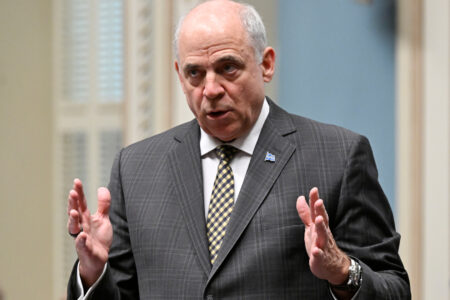
The devastation of the COVID global pandemic is both wide and deep. It has led to more than 5.1 million deaths and threatens to put more than 270 million people at risk of starvation as they become “acutely food insecure.” It caused the global economy to contract by 3.2 per cent and world trade to fall by 5.3 per cent in 2020. In spite of the projected recovery in 2021, it may cause persistent medium-term damage, particularly in developing economies. COVID has also reversed decades of gains in the fight against global poverty by adding an unprecedented 97 million people to the ranks of the poor.
Many of the effects linked to COVID are man-made ─ the consequences of policy decisions such as economy-wide lockdowns to manage the unfolding crisis.
The pandemic is an example of a wicked policy problem, a problem where the possible guiding goals are multiple and conflicting, and policies for resolving it are uncertain in terms of their likely effectiveness and impact.
Managing such policy problems requires new approaches, flexibility and policy experimentation. Here, the COVID experience has important lessons to offer.
Multiple and conflicting goals
Looking back at the evolution of the pandemic and its management, the overall goal seemed clear from the outset: control severe illness and death resulting from COVID. But to do this should the focus be on “flattening the curve” so hospitals are not overwhelmed? Or should it be on eliminating all virus risks because “human life is priceless”?
Should policy goals also account for indirect public health effects of lockdowns, such as the increased risk from delays in essential medical services, as well as more depressions, suicides and drug abuse? Should they reflect economic costs, including unemployment, company bankruptcies and the disproportionate impact on workers who are less skilled and/or less educated?
Then there is the challenge of incorporating the social costs, such as increased domestic violence, damaged education systems, and the possibility of conflict between those with and those without the resources to withstand the crisis. As well, there is the delicate issue of balancing the benefits of contact-tracing technology against the privacy risks.
These widely differing dimensions of the COVID pandemic suggest that there are difficult decisions about goals and trade-offs that cannot be resolved by simply “following the science.”
Uncertainty
The policies for managing the pandemic are uncertain. Is a strict full lockdown essential, as Austria imposed in November? Or is no lockdown and targeting herd-immunity more effective, as Sweden has chosen? Perhaps something in between would be better: a targeted lockdown that reflects different levels of risks for particular age groups, types of jobs, and communities? There have been significant variations in approaches and outcomes, both globally and within countries.
There is a general recognition of the need for vaccination against COVID, but the debate over mandatory “vaccine passports” continues. Although there is an increasing amount of scientific evidence suggesting that natural immunity after COVID may provide long-term protection, it is uncertain how best to link this to vaccinations. A further challenge is how to incorporate early-stage outpatient treatments, which, according to some studies, could be effective in reducing the need for hospitalization.
The serious non-medical issues must also be considered. How much financial support is essential to offset the resulting deep economic contraction from lockdowns, and when does the longer-term fiscal risk begin to affect Canada’s economy? Is social distancing manageable only in large enterprises, while many smaller firms, which may have limited access to the financial resources necessary, are forced to close? This is despite the fact that small- and medium-sized enterprises (SMEs) employ around 89 per cent of Canada’s private labour force.
The varied and uncertain outcomes of policy responses to COVID reveal that our understanding of the crisis and how it can be effectively managed is limited, even as the pandemic continues to unfold.
The social learning paradigm
Framed in this way, COVID is not only a public health problem but also a broader public policy problem. It involves a dynamic, “exceedingly rare and massively consequential event” that causes high uncertainty and ambiguity, and has diverse local impacts. Effective management of such crises requires flexibility, policy experimentation and absorbing new learning, all in the midst of change. This is the essence of the social learning model. The approach suggests the following prescriptions, which could help to inform management of wicked policy problems more generally.
- Include a wide range of expertise and experiences relevant to the problem. While recognizing the central role of public health expertise to combat COVID, it is essential to engage, from the outset, a variety of experts including economists, sociologists, psychologists and change-management specialists, as well as different public health perspectives. This allows the recognition of multiple goals, exploration of alternative policies, and balancing of competing risks, thus providing a more flexible basis for action. It is essential to ensure there is public participation in the discussions, particularly by key affected groups, both as a critical source of information and experience, and to build the public trust that is vital for program implementation.
- Commit to experimentation to address wicked policy problems. While the COVID pandemic is global, it is also in many ways a local problem. It is having widely different impacts on the countries of the world, including Canada, as well as on different social groups, depending on, for example, age, jobs and ethnicity. Thus, the policies implemented and their outcomes vary ─ from Sweden’s “herd immunity” to Austria’s full lockdown; the different contact-tracing technologies; and assorted tactics for reopening after lockdowns. The varied responses and outcomes are mostly inadvertent by-products of initiatives taken locally. Instead, the policy process for wicked problems in general should be driven by planned and managed experimentation with diverse programs of action deliberately tailored to local circumstances. This can provide the basis for learning more general lessons from a variety of local actions. In this way, information can be collected on policy successes and failures under different conditions to improve and refine local and global actions.
- Provide for horizontal channels of communication among diverse local experiments for sharing experiences. The exchange of information on local COVID-related initiatives has been mostly ad hoc and piecemeal. Expanding and supporting formal and informal channels of communication for sharing experiences among local experiments would greatly enrich the basis for designing and adapting local actions. New knowledge is continually generated on successes and failures by local communities, by provinces and by nations.
- Strengthen the capacity of central institutions to learn from, support and co-ordinate local policy experiments. Management of COVID requires translating emerging knowledge from local actions into broader policy guidance and co-ordination. This should be a key role of central institutions at the subnational level (for example, the provincial level in Canada and the state level in the U.S.), as well as at the national and global levels. Effective central guidance and co-ordination can also help achieve economies of scale that enhance the cost-effectiveness of local initiatives.
An allusion that others have used comes from Tolstoy’s Anna Karenina, which opens with the phrase “All happy families are alike; each unhappy family is unhappy in its own way.” In the same way, recurring policy problems are generally alike, but every crisis, including the COVID pandemic, presents unique challenges. Effective strategies for managing wicked problems are unlikely to come from standard blueprints. They are at the interface of science and politics and are, by their very nature, what the noted American nuclear physicist Alvin M. Weinberg termed “trans-science.” But the policy process can be improved for more effective crisis management. In this, co-ordinated local experimentation for social learning can play an important role.









